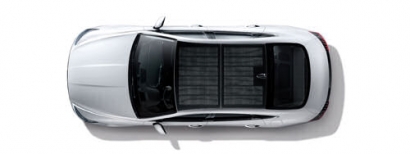
Solar vehicles are electric vehicle that utilize solar energy. The vehicle is based on photovoltaic cells made up of silicon that convert the sunlight into energy and recharge the battery. The solar vehicle can also preserve some energy to function smoothly during the night or in the absence of sunlight. Moreover, besides being a reliable nature-friendly option, these sun-powered vehicles offer a number of advantages over the fuel-based vehicles. So, let’s dive into some of these advantages.
Preserves natural resources:
Apart from the resources required to manufacture the vehicle, panels, and other types of machinery, solar vehicles do not require any additional energy contribution. Solar vehicles use petroleum products for lubrication only. Other than this the sun-powered vehicle doesn’t require fuel, or oil, as the motor and other types of machinery in the solar vehicle are maintenance-free, as compared to the fuel-based vehicles.
Emission-free:
Electric-based solar vehicles don’t require any fuel, which causes no emissions. This is one of the most essential aspects of solar vehicles, as it makes the vehicle more attractive and environmentally friendly. The solar vehicle can help the motorists to have an emission-free vehicle, which reduces air pollution and greenhouse gases.
Low maintenance costs:
The lack of dependence on fuel sources makes it free from the associated costs. On the other hand, unlike other conventional vehicles, solar vehicles have a low maintenance cost, which again reduces the costs.
Driving comfort:
The solar-based electric vehicles are composed of aluminum and other lightweight materials, which help it run faster and more smoothly compared to conventional vehicles. The electric motors used in solar vehicles are usually smaller than the corresponding gas engines. These engines, therefore, generate no noise and less vibration.
Solar vehicles are gaining traction as a possible mainstream solution for consumers who need ecologically friendly personal transportation. Innovative ideas, research, and launches are leading the market to expand further.
Leading market players are working on innovative ideas:
Where on one hand, the key players are hitting the market with new launches, on the other hand, they are working hard to develop a convenient and consistent solar vehicle. A leading automotive company, Hyundai has already launched its first solar vehicle with the solar roof charging system. Toyota, a multinational automobile manufacturer, is working to develop a solar power electric car. Furthermore, the company has teamed up with Japanese multinational corporations for electronic product manufacturing, Sharp, and New Energy and Industrial Technology Development Organization of Japan (NEDO). Moreover, the companies are hoping to innovate a vehicle that could run forever, without needing charging.
The solar vehicle can make nature healthier:
Solar power is a way to create eco-friendly transportation. While conventional vehicles have been of much use and convenience they have also caused a number of health and environmental problems. Solar vehicles, on the other hand, promise to fight against all environmental-related issues.
Moreover, with the activities and developments, the market is expanding rapidly. According to a report by Allied Market Research, the global solar vehicle market is expected to garner $329.5 million, with a CAGR of 43.3% by 2023. The augmented acceptance of the latest technology for vehicles has increased the demand for solar vehicles which leads to boost the growth of the market. Also, the increased income group among consumers and the demand for emission-free vehicles has urged solar vehicle producers to provide commercial solar vehicles. Moreover, with the researches in the field of wireless charging, and further technological advancements the market is expected to grow exponentially.
Author: AkshitaPacholi
AkshitaPacholi is a content writer and researcher at Allied Market Research. She holds a Masters Degree in English Literature and has a passion for new and developing technologies.

